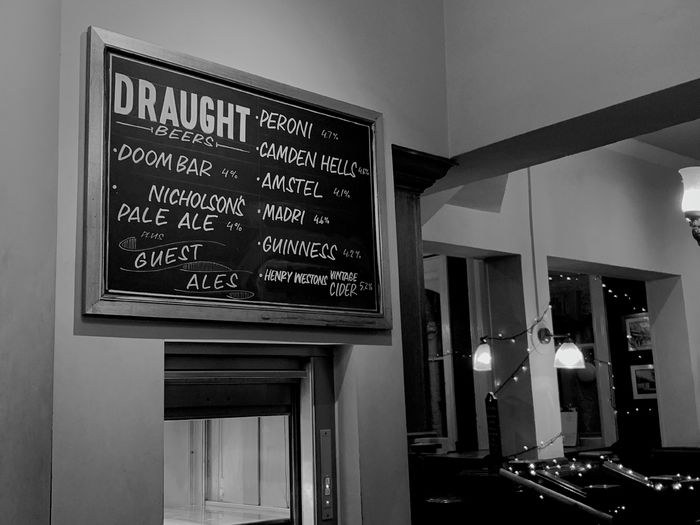Punting for pints: Cambridge students drinking more despite national trends
Varsity’s survey found that while drinking is up, attitudes towards clubbing remains muted

A Varsity survey has found that Cambridge students are drinking more than they used to, with over half drinking several times a week and just one in eight students not drinking at all.
Varsity’s survey highlights that rates of student drinking have increased since 2017 when a survey conducted by the University reported that nearly three in ten students did not drink while a quarter regularly drank to get drunk.
Varsity’s data also shows that Cambridge students drink more than the national average for Gen Z, of whom one quarter are teetotal according to a 2024 survey by Drinkaware.
Cambridge students drink more than the national average for Gen Z
In addition to drinking habits, Varsity’s survey measured drug use and discovered that only one in three students have taken Class B drugs, while 15% have taken Class A drugs.
This too was higher than the national average according to an ONS survey which found that 10% of those aged 16 to 24 had taken Class A drugs and just over a quarter had smoked cannabis.
Over half of the students surveyed by Varsity reported an increase in alcohol and drug use in Cambridge during term time. Just 10% reported a decrease during term time, and when asked about their reasons for this, several students cited the “Cambridge workload.”
One student remarked, “I think sometimes Cambridge students feel a need to overcompensate at social occasions to counterbalance the amount of time they spend working.”
Another commented that “Cambridge is such an easy place to become addicted to substances” due to its “pressure cooker” environment and the “implicit peer pressure to go out.”
Many in the survey explained that they have recently tried to cut down on drinking or smoking, reflecting national trends of Gen Z as the ‘sober curious’ generation
Although more Cambridge students are drinking than before, many in the survey explained that they have recently tried to cut down on drinking or smoking, reflecting national trends of Gen Z as the ‘sober curious’ generation.
One student said: “I drank daily in sixth form and decided that the mild buzz was not worth damaging my health for. I have smoked cannabis, but felt similarly – there’s zero long-term gain involved, the high [or] buzz was negligible, and the long-term effect of drugs and alcohol on health are almost always either understudied or neutral-to-negative.”
There was a noticeable divide in the drinking habits of humanities and STEM students, with humanities students (particularly Theology and History) more consistently disclosing frequently drinking and going clubbing.
In comparison, for Engineering, Computer Science, and Natural Sciences, students recorded either never drinking or very frequent drinking, with little in between.
Some trends in drinking habits were also observed across the different colleges, with the commuting Girton and Homerton students surveyed reporting that they drink alcohol either “sometimes” or “several times a week.” Other colleges which reported high levels of drinking include Jesus, Pembroke, and Kings where students reported that they drink alcohol either “several times a week” or “daily.”
The drink of choice for three in ten students was a spirit and a mixer, and around 20% preferred beer or wine respectively.
The most popular occasion for drinking alcohol was being at the pub, closely followed by clubbing and trips to a college bar. Other situations which called for drinking included “bedrotting”, “1am lock in,” and “reading Foucault”.
However, in contrast to the high rates of drinking, more than half of Cambridge students revealed that they rarely go clubbing or on nights out, with only one in five disclosing that they go out several times a week.
In response to these results, Michael Bryce, the founder of Nightlife Cambridge, told Varsity that “the drop in students drinking to get drunk is a positive sign,” since “it shows a move towards more mindful drinking and probably reflects a broader cultural change in how young people socialise.”
He also commented, “While it’s clear that a lot of students aren’t regular clubbers, the fact that 20% still go several times a week is encouraging in what is a pretty tough climate for late-night hospitality venues at the moment. It suggests there’s still demand, but it’s becoming more niche, so the challenge for nightlife in Cambridge is how we create something that draws in those who rarely go while keeping the regulars coming back.”
Want to share your thoughts on this article? Send us a letter to letters@varsity.co.uk or by using this form.
 Lifestyle / The woes of intercollegiate friendships8 May 2025
Lifestyle / The woes of intercollegiate friendships8 May 2025 Lifestyle / A beginners’ guide to C-Sunday1 May 2025
Lifestyle / A beginners’ guide to C-Sunday1 May 2025 News / Angela Rayner could intervene to stop Trinity ‘mothballing’ planned affordable homes site7 May 2025
News / Angela Rayner could intervene to stop Trinity ‘mothballing’ planned affordable homes site7 May 2025 News / Graduating Cambridge student interrupts ceremony with pro-Palestine speech3 May 2025
News / Graduating Cambridge student interrupts ceremony with pro-Palestine speech3 May 2025 Features / The quiet saboteur: when misogyny comes from within7 May 2025
Features / The quiet saboteur: when misogyny comes from within7 May 2025






